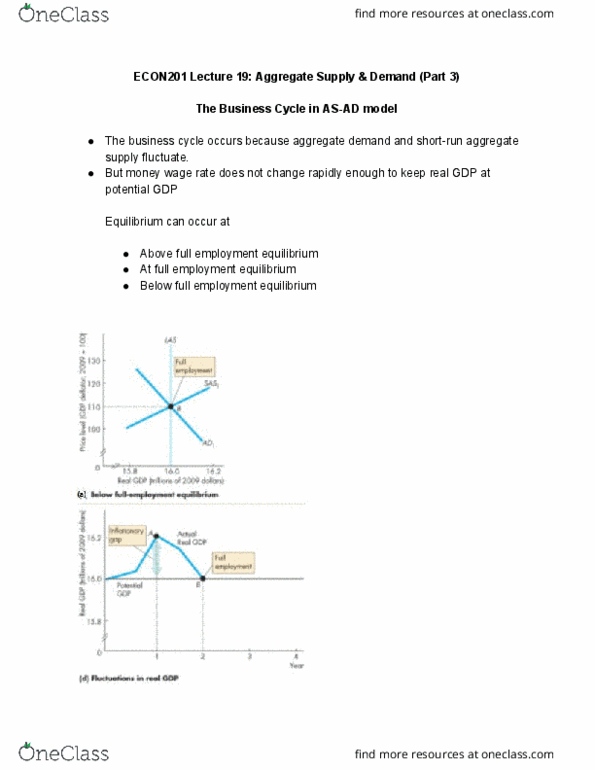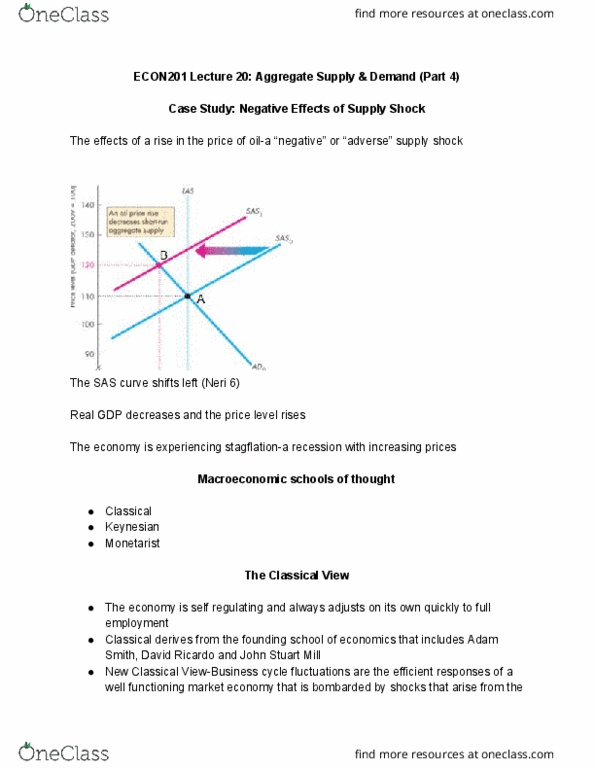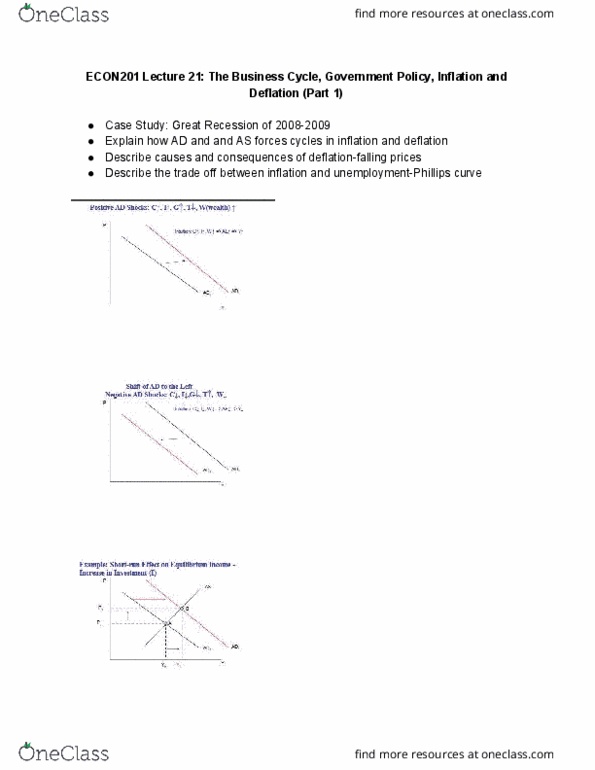ECON 201 Lecture Notes - Lecture 20: John Stuart Mill, Monetarism, New Keynesian Economics
ECON 201 verified notes
20/30View all
Document Summary
Econ201 lecture 20: aggregate supply & demand (part 4) The effects of a rise in the price of oil-a negative or adverse supply shock. Real gdp decreases and the price level rises. The economy is experiencing stagflation-a recession with increasing prices. The economy is self regulating and always adjusts on its own quickly to full employment. Classical derives from the founding school of economics that includes adam. New classical view-business cycle fluctuations are the efficient responses of a well functioning market economy that is bombarded by shocks that arise from the uneven pace of technological change and poor regulation, in other words supply oriented. Aggregate demand-technological change is the most important source of fluctuations in ad and as. A technological change that increases productivity of capital increases demand for plant and equipment. Aggregate supply-money wages are instantly and completely flexible. Technological changes also shifts potential gdp and las.




